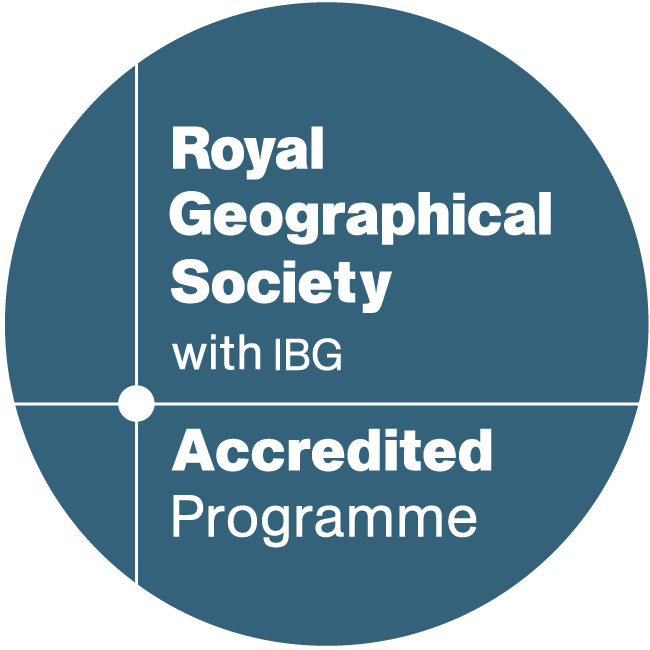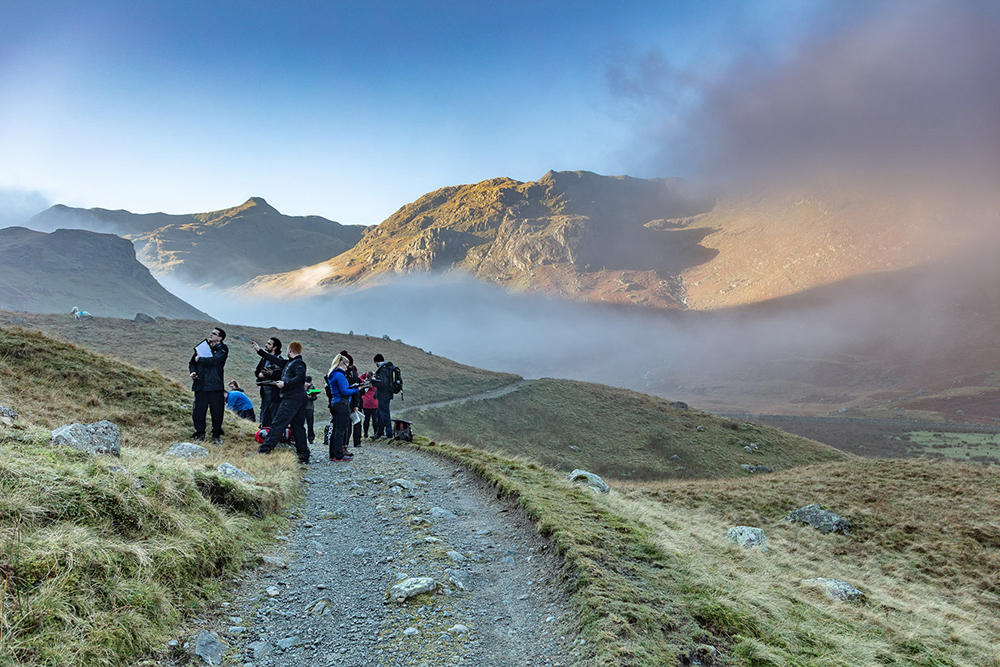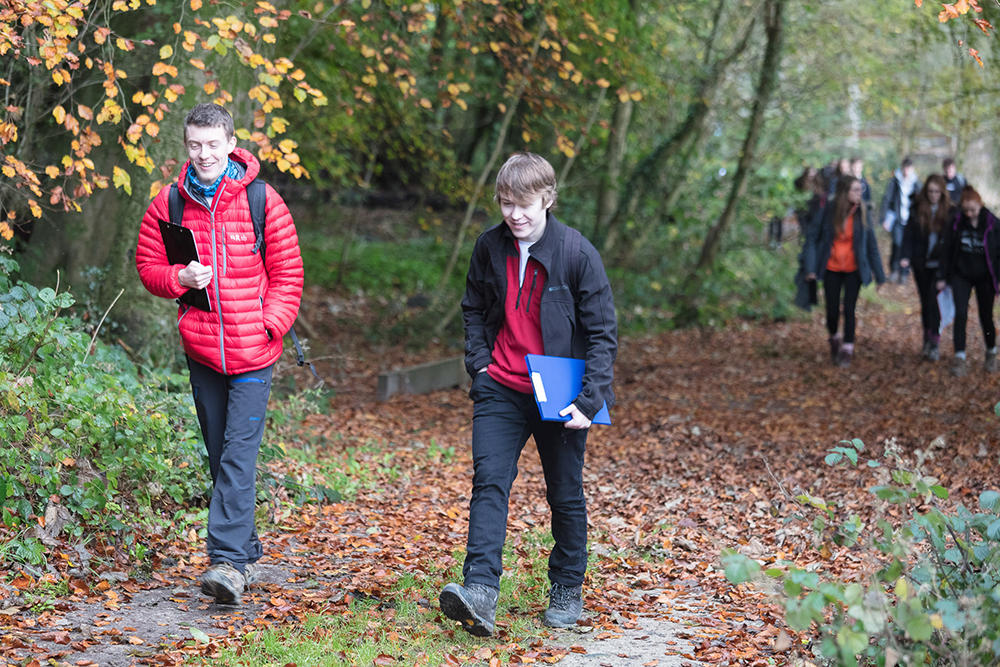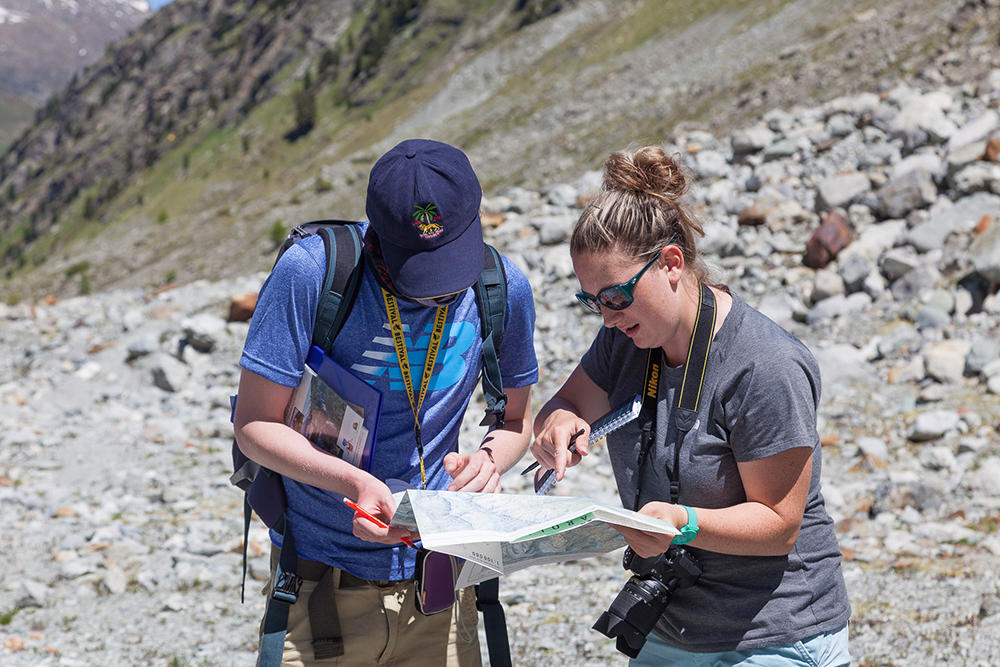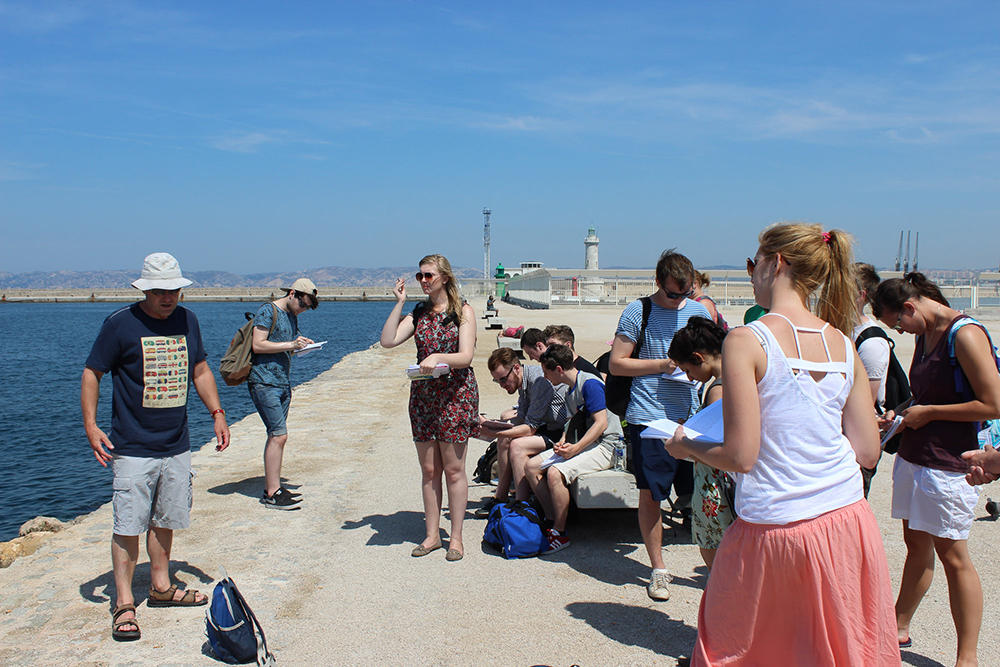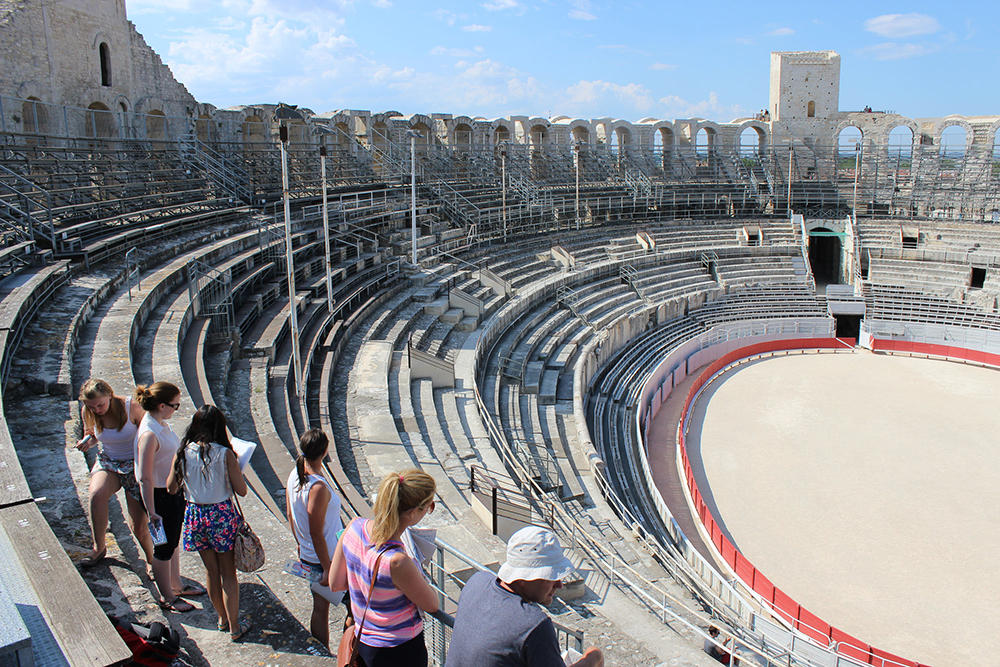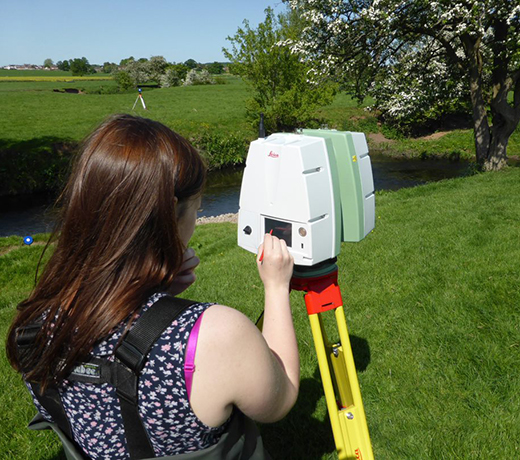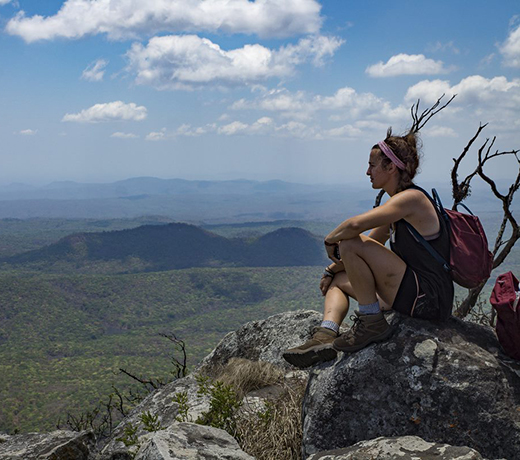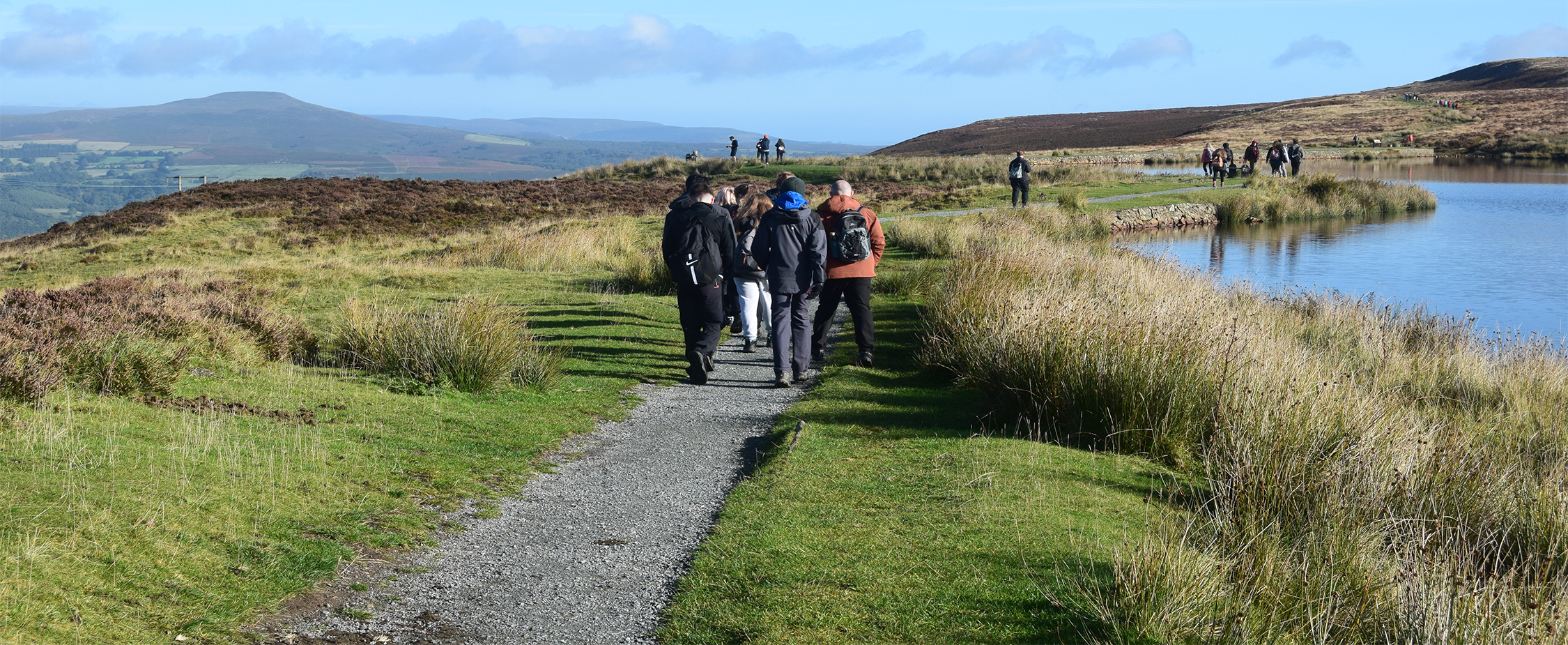Whether your future job lies in the environmental sector, business, education, the natural or social sciences, in geospatial industries or in travel – our highly practical geography degree opens a range of career options.
in the UK for student satisfaction
of students said staff made the subject engaging
Accredited programmes contain a solid academic foundation in geographical knowledge and skills, and prepare you to address the needs of the world.
First for jobs
The University of Worcester is first in the UK for sustained employment, further study or both, five years after graduation (excluding specialist institutions) - Longitudinal Educational Outcomes Survey 2024. Read more.
Overview
With practical, hands-on learning from day one and an impressive programme of field trips, our graduates are highly valued by employers for their insights into social, economic and environmental issues as well as their research, problem-solving and project management skills.
By the time you graduate, you’ll have extensive fieldwork experience and be confident with using industry-standard equipment and software.
In year one, you will study both physical and human geography. In years two and three, you can choose to focus more on physical or human geography. You’ll have a range of modules to choose from so you can tailor your degree by picking the topics that most interest you.
Our small group sizes mean more opportunities for interactive learning with cutting-edge field and laboratory equipment, all of which are available for regular student use. You’ll have opportunities to develop specialist skills in earth observation, surveying, and river monitoring, and learn how to fly drones and collect, process, and analyse their data.
Placements
You’ll have many opportunities to gain real-world experience and enhance your CV by carrying out voluntary work, or by completing a professional placement in your third year. We have well-established links with government organisations, such as local authority planning departments, and environmental and conservation agencies.
Fieldwork
Our course includes fully-funded residential field trips, taking you further afield to investigate other environments and cultures. Recent locations have included the Lake District, the Scottish Highlands, Provence, and the Swiss Alps.
We also make the most of the region around us. This historic city of Worcester is the perfect base for fieldwork, with easy access to a diverse range of urban and rural settings, including the Malverns, the Cotswolds, and Birmingham.
Course content
Each year you will study a mix of mandatory and optional modules. This flexible course lets you explore different subjects and career paths in geography before choosing to specialise in your final year.
Optional modules will run if they receive enough interest. It is not guaranteed that all modules will run every year.
Optional modules
Careers
You’ll graduate with subject-specific knowledge and skills in areas like climate change, cartography and GIS, as well as a wide range of transferable skills, such as working in a team and data analysis. So, you’ll be highly employable, both in the environment sector and in the wider employment market.
An extensive guest lecture programme, seminars and conferences give you the opportunity to network with potential employers throughout your degree.
Recent graduates have secured positions in the following fields:
- Environmental management and consultancy
- Geographical Information Systems (GIS)
- Flood risk management
- River science
- Urban and rural planning
- Local government
- Data management
- Conservation
- Tourism
- Earth observation
- Teaching
- Surveying
- Corporate responsibility and sustainability
You may also choose to take your learning further and progress onto postgraduate study. Relevant postgraduate degrees at Worcester include:
Course highlights
Teaching and assessment
You’ll be taught through a combination of interactive workshops, lectures, seminars, fieldwork, and practical laboratory activities.
There are no exams on this course. Instead, you’ll be assessed using applied methods designed to prepare you for the world of work. These include consultancy reports, planning enquiries, strategy developments and individual or group presentations.
Teaching and assessment contents
The University emphasises enabling students to develop independent learning capabilities that will equip them for lifelong learning and future employment, as well as academic achievement. A mixture of independent study, teaching and academic support from Student Services and Library Services, and also the personal academic tutoring system enables you to reflect on progress and build up a profile of skills, achievements and experiences that will help you to flourish and be successful.
You are taught through a diverse range of teaching methods, including, lectures, seminars, laboratory practical sessions, practical activities, and project work. Seminars enable the discussion and development of understanding of topics covered in lectures. Laboratory practicals are focused on developing subject-specific skills and applied individual and group project work.
The university is a close-knit community and we adopt a very personal approach with an open-door policy allowing you easy access to teaching staff who will offer advice and feedback on your assessed work. You will be assigned a Personal Academic Tutor (PAT) who will support your academic progress and will assist you with any issues throughout your time at the university.
Student stories
Entry requirements
UCAS tariff points required: 112
| Qualification | Grade |
|---|---|
| A-level | BBC |
| BTEC National Extended Diploma | DMM |
| T-level | Merit |
We do accept Access to HE Diplomas and other qualifications which may not exactly match the combinations above. Work out your estimated points with the UCAS tariff calculator.
Any questions?
If you have any questions about entry requirements, please call our Admissions Office on 01905 855111 or email admissions@worc.ac.uk.
Fees
Fees contents
UK and EU students
The Government has announced that it will increase tuition fees and maintenance loans by 3.1% from the 2025/26 academic cycle. Subject to approval, the University intends to increase our tuition fees in line with this and as per our terms and conditions. This means that from September 2025 the standard fee for full-time home and EU undergraduate students on BA/BSc/LLB degrees and FdA/FdSc degrees will be £9,535 per year for new and continuing students.
For more details on course fees, please visit our course fees page.
International students
The standard tuition fee for full-time international students enrolling on BA/BSc/LLB degrees and FdA/FdSc degrees in the 2025/26 academic year is £16,700 per year.
For more details on course fees, please visit our course fees page.
How to apply
How to apply contents
Applying through UCAS
UCAS is the central organisation through which applications are processed for full-time undergraduate courses in the UK.
Read our how to apply pages for more information on the application process, or if you’d like to apply for part-time study.
Geography BSc (Hons) - F800
Contact
If you have any questions, please get in touch. We're here to help you every step of the way.
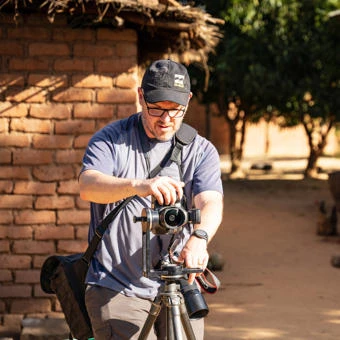
Admissions Office
admissions@worc.ac.uk01905 855111More to explore
Open Days
Visiting us is the best way to get a feel for student life at the University of Worcester.

The City of Worcester
Worcester is a welcoming university city with great transport links and plenty of student parking.

Accommodation
Benefit from our accommodation guarantee. We have rooms on campus to suit every budget including en-suite options.


